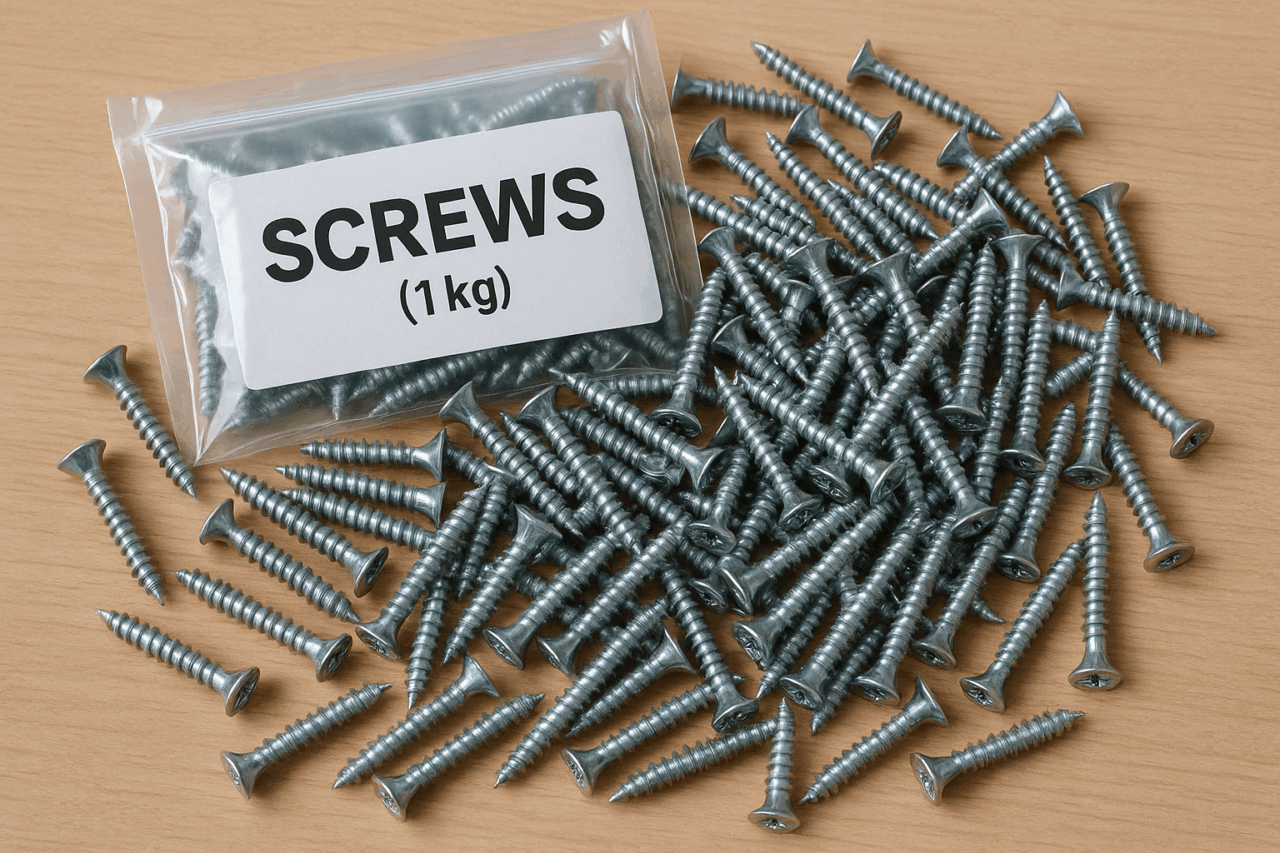Ah, screws. Those tiny, unassuming heroes of the construction world that hold our lives together—literally. Ever tried assembling a bookshelf without them? Spoiler alert: it’s a wobbly nightmare. But here’s an interesting tidbit: despite their size, screws are so integral to modern engineering that there are over 200 billion of them manufactured each year. That’s enough to make a line from here to the moon six times over! And if you think that’s cosmic, let’s delve into the weighty matter of screws.
Answer to the Question:
How much does a screws (1 kg) weigh? Well, in the world of weights and measures, 1 kg of screws weighs, quite predictably, 1 kg. But consider this: that kilogram could consist of hundreds of tiny screws, or just a handful of the industrial titans used in bridge construction. The mix and match of size and type make screws a fascinating study in weight distribution.
A Brief History and Importance of Knowing Screw Weights:
Screws have been around in one form or another since ancient times, with the ancient Greeks using wooden screws in presses to extract olive oil and wine. Fast-forward a few centuries, add a touch of industrial revolution, and voilà, screws became the backbone of modern manufacturing. Weighing screws might not seem like rocket science, but knowing their weight is vital in numerous industries. Imagine designing an aircraft where every gram counts, or shipping containers where space and weight are at a premium. It’s like packing for a vacation in the 1970s with only one suitcase—every item (or screw) matters!
On a lighter note, weighing screws might not be as dramatic as a Led Zeppelin reunion, but it’s certainly an art form appreciated by engineers and DIY enthusiasts alike. Whether you’re securing a shelf or assembling a time machine (hey, one can dream), knowing the precise weight of your screws can mean the difference between success and a pile of parts resembling a modern art installation. So next time you find yourself picking up a box of screws, remember—you’re not just holding a handful of metal; you’re holding history, ingenuity, and a weighty tale of human innovation.

Comments (0)
There are no comments here yet, you can be the first!